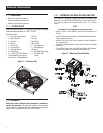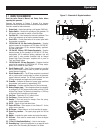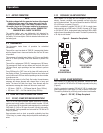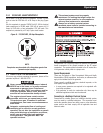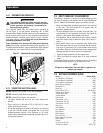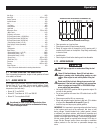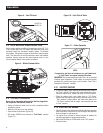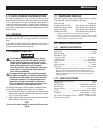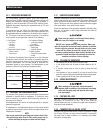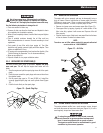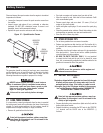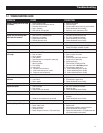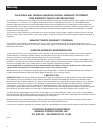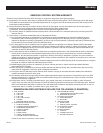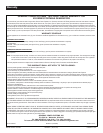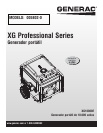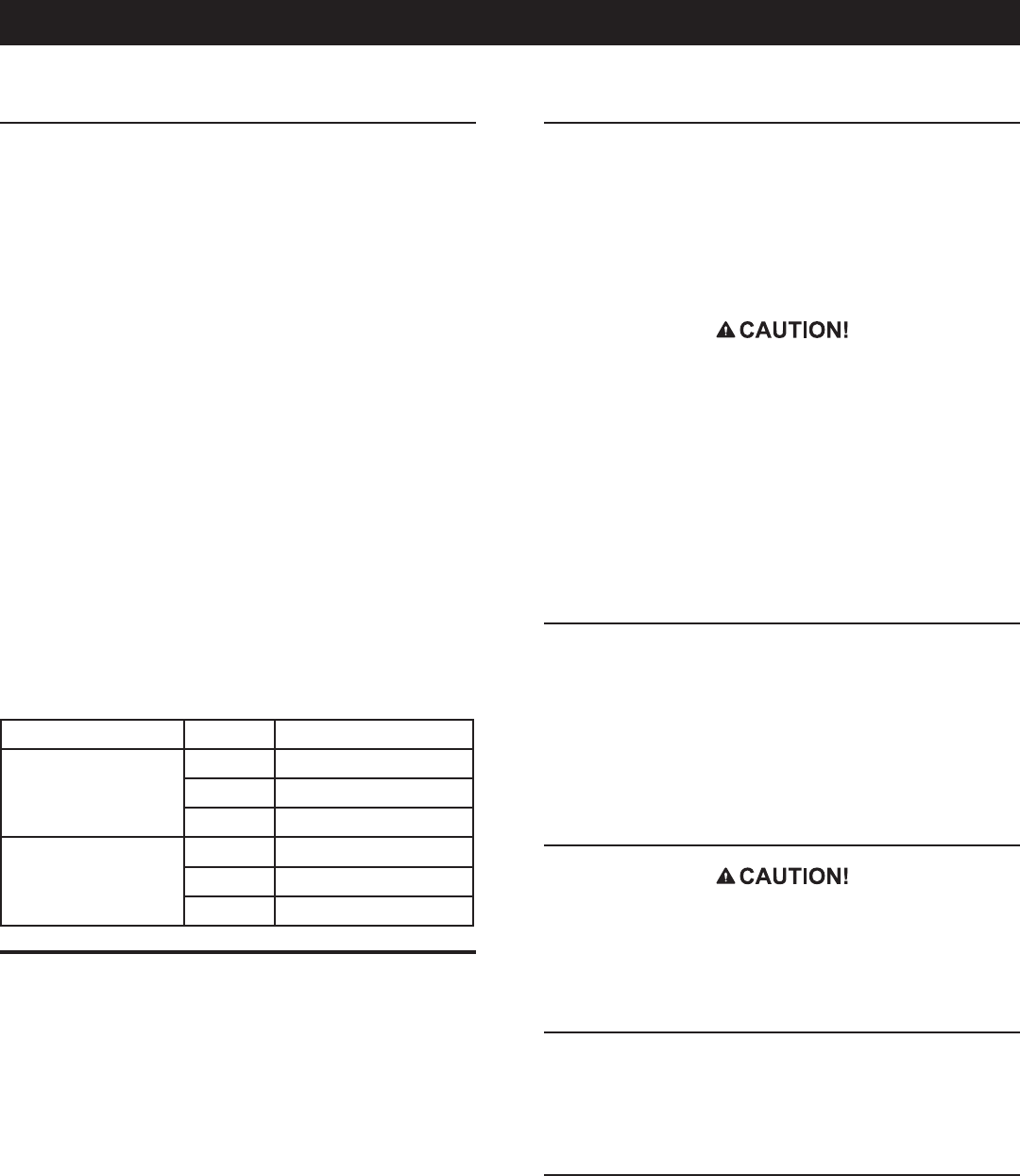
3.2.3 EMISSIONS INFORMATION
The Environmental Protection Agency (EPA) and California Air
Resource Board (CARB) require that your generator comply with
exhaust and evaporative emission standards. This generator is
certified to meet the applicable EPA and CARB emission levels.
Additional information regarding the requirements set by EPA and
CARB is as follows:
It is important that you follow the maintenance specifications
provided in this manual to ensure that your engine complies with
the applicable emission standards for the duration of the engine’s
life. This engine is certified to operate on gasoline. The emission
control system on your generator consists of the following:
Fuel System • Air Induction System•
~ Fuel Tank ~ Intake pipe/manifold
~ Fuel Cap ~ Air cleaner
~ Carburetor •
Ignition System
~ Fuel Lines ~ Spark plug
Evaporative Control System ~ Ignition module•
~ Carbon Canister • Exhaust System
~ Vapor Hoses ~ Pulse Air Injection Valve
~ Muffler
The Emissions Compliance Period referred to on the Emissions
Compliance Label indicates the number of operating hours for
which the engine has been shown to meet Federal and California
emission requirements. See the table below to determine the
compliance period for your generator. The displacement of your
generator is listed on the Emissions Compliance Label.
Displacement Category Compliance Period
≥ 66 cc - < 225 cc
A 500 Hours
B 250 Hours
C 125 Hours
≥ 225 cc
A 1000 Hours
B 500 Hours
C 250 Hours
3.3 GENERAL RECOMMENDATIONS
The warranty of the generator does not cover items that have been
subjected to operator abuse or negligence. To receive full value
from the warranty, the operator must maintain the generator as
instructed in this manual.
Some adjustments will need to be made periodically to properly
maintain the generator.
All adjustments in the Maintenance section of this manual should
be made at least once each season. Follow the requirements in the
"Maintenance Schedule".
NOTE:
Once a year replace the spark plugs and replace the air filter.
New spark plugs and a clean air filter assure proper fuel-air
mixture and help the engine run better and last longer.
3.3.1 GENERATOR MAINTENANCE
Generator maintenance consists of keeping the unit clean and dry.
Operate and store the unit in a clean dry environment where it will
not be exposed to excessive dust, dirt, moisture or any corrosive
vapors. Cooling air slots in the generator must not become clogged
with snow, leaves, or any other foreign material.
Check the cleanliness of the generator frequently and clean when
dust, dirt, oil, moisture or other foreign substances are visible on
its exterior surface.
n
Never insert any object or tool through the air cooling
slots, even if the engine is not running.
NOTE:
DO NOT use a garden hose to clean generator. Water can
enter the engine fuel system and cause problems. In addition,
if water enters the generator through cooling air slots, some
water will be retained in voids and crevices of the rotor
and stator winding insulation. Water and dirt buildup on the
generator internal windings will eventually decrease the
insulation resistance of these windings.
3.3.2 TO CLEAN THE GENERATOR
Use a damp cloth to wipe exterior surfaces clean.•
A soft, bristle brush may be used to loosen caked on dirt, oil, •
etc.
A vacuum cleaner may be used to pick up loose dirt and •
debris.
Low pressure air (not to exceed 25 psi) may be used to blow •
away dirt. Inspect cooling air slots and openings on the generator.
These openings must be kept clean and unobstructed.
3.3.3 ENGINE MAINTENANCE
n
When working on the generator, always disconnect
negative cable from battery. Also, disconnect spark plug
wires from the spark plugs and keep the wires away
from spark plugs.
3.3.4 CHECKING OIL LEVEL
See the “BEFORE STARTING THE GENERATOR” section for
information on checking the oil level. The oil level should be
checked before each use, or at least every eight hours of operation.
Keep the oil level maintained.
3.3.5 CHANGING THE OIL AND OIL FILTER
Change the oil and filter after the first 30 hours of operation. Change
the oil every 100 hours or every season thereafter. If running this
unit under dirty or dusty conditions, or in extremely hot weather,
change the oil more often.
12
Maintenance



